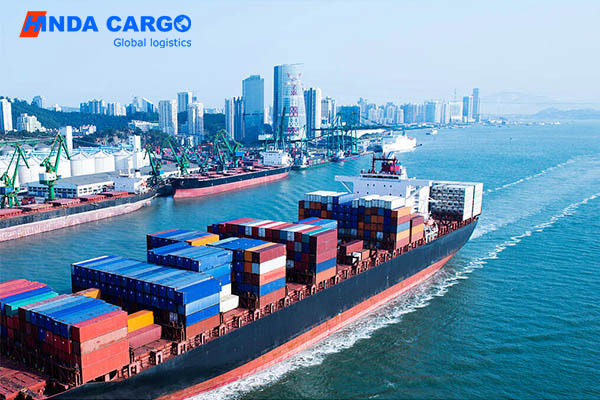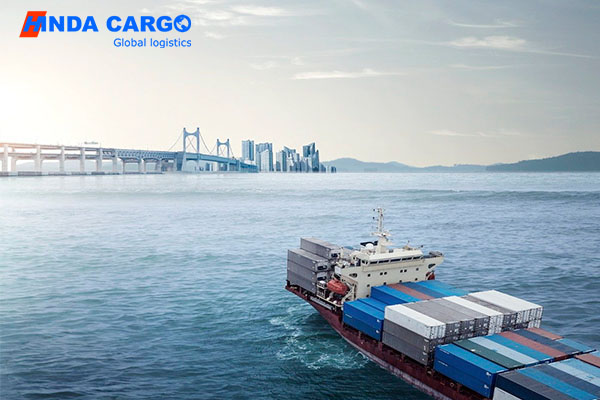What is the difference between FOB and CIF?
Freight transaction terms play an important role in international trade and freight logistics. Among them, FOB (free on board) and CIF (cost, insurance and freight) are two common transaction terms. There is a clear difference between the two, which has a direct impact on the sharing of rights, responsibilities and costs between buyers and sellers during the transportation of goods. This article will focus on Title A, Title B and Title C, explaining the differences between FOB and CIF, as well as the application of the two in actual operations.
What is the difference between FOB and CIF?
FOB and CIF are two common international trade terms. They have significant differences in the division of responsibilities, cost bearing and risk transfer between buyers and sellers.
1. Division of responsibilities:
Under FOB conditions, the seller's responsibility ends when the goods are loaded on the ship. The buyer hereby bears the risks and expenses of the goods during transportation. Under CIF conditions, the seller is not only responsible for delivering the goods to the destination port designated by the buyer, but also bears the insurance costs and risks of the goods during transportation until the goods arrive safely.
2. Expenses:
Under FOB conditions, the seller only bears the cost of loading the goods on the ship, and the remaining transportation costs, insurance costs, and loading and unloading costs are borne by the buyer. Under CIF conditions, the seller bears the total cost of the goods, freight and insurance. This means the buyer pays no additional fees until the goods reach their destination.
3. Risk transfer:
Under FOB conditions, the risk of the goods passes to the buyer after shipment. Under CIF conditions, the transfer of risk occurs before the goods arrive at the port of destination. The seller is responsible for ensuring the safety of the goods during transportation until the goods are handed over to the buyer.

What factors do buyers need to consider when choosing between FOB and CIF?
Buyers need to consider multiple factors when choosing FOB and CIF transaction terms, including cost, risk and logistics management.
1. Cost control: There is a clear difference in cost between FOB and CIF. Choosing FOB means that buyers can choose transportation and insurance services by themselves, control costs and optimize logistics processes. Choosing CIF allows the seller to be responsible for transportation and insurance, and the buyer does not need to worry.
2. Risk management: When choosing FOB, the buyer bears the risk after the goods are shipped and needs to ensure the safety of the goods during transportation. Under CIF conditions, the seller bears the transportation risk until the goods arrive at the destination. This helps the buyer reduce risk, but can also lead to uncertainty about the seller’s shipping and insurance options.
3. Logistics flexibility: FOB allows buyers to choose logistics service providers and routes independently, giving them greater flexibility and control. CIF, on the other hand, gives the seller full responsibility for logistics management, and buyers may be restricted in this regard.
4. Insurance liability: When choosing FOB, buyers need to purchase insurance by themselves to ensure the safety of the goods during transportation. When choosing CIF, the seller is responsible for purchasing insurance to provide protection for the goods during transportation.

What issues should sellers pay attention to when choosing FOB and CIF?
When choosing FOB and CIF transaction terms, sellers need to weigh various factors to ensure they maximize their own interests and meet the needs of buyers.
1. Cost borne
Under FOB conditions, the seller only bears the cost of loading the goods on the ship, and other costs are borne by the buyer. Under CIF conditions, the seller needs to pay for the transportation and insurance of the goods, which will increase the seller's costs.
2. Scope of Responsibility
Choosing FOB means that the seller’s responsibility ends when the goods are shipped. Choosing CIF requires the seller to be responsible for the safety of the goods during transportation until the goods arrive at the destination port.
3. Shipping and Insurance Options
Under FOB conditions, the seller does not need to participate in the selection of transportation and insurance. Under CIF conditions, the seller needs to choose appropriate transportation and insurance services to ensure that the goods reach the destination safely.
4. Competitive advantage
Choosing CIF may enhance the seller's competitive advantage in the international market because it provides a more convenient transaction method for buyers. But it also means the seller needs to bear higher risks and costs.

Summarize
FOB and CIF are common transaction terms in international trade. They have obvious differences in terms of responsibilities, fees and risks. When buyers and sellers choose these two transaction terms, they need to weigh the pros and cons based on their own needs and actual circumstances. Whether you choose FOB or CIF, both parties need to fully understand their respective responsibilities and obligations before the transaction to ensure that the transaction proceeds smoothly.




